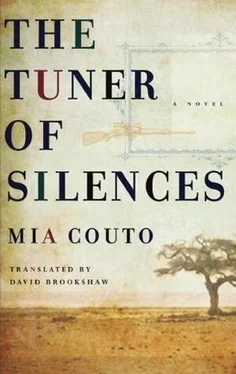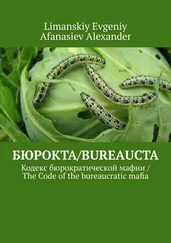— Do you think you’re scared? Well you may as well know that Father is much more scared.
— Father?
— Do you know why Father doesn’t want you there in his room? Because he’s scared to death that you’ll catch him talking in his sleep.
— Talking about what?
— Inadmissible things.
Once again, it was Dona Dordalma, our absent mother, who was the cause of such strange behaviour. Instead of fading away into the distant past, she invaded the fissures of silence within night’s recesses. And there was no way of putting the ghost to rest. Her mysterious death, without cause or visibility, had not stolen her from the world of the living.
— Father, has mother died?
— Four hundred times.
— What?
— I’ve told you, four hundred times: your mother died, every little bit of her, it’s as if she was never alive.
— So where’s she buried?
— She’s buried everywhere, of course.
So maybe that was it: my father had emptied the world so as to be able to fill it with his inventions. At first, we were bewitched by the flighty birds that emerged from his speech and curled upwards like smoke.
— The world: do you want to know what it’s like?
Our eyes answered by themselves. Yes of course, we yearned to know about it, as if the ground on which we stood depended on it.
— Well, the world, children. .
And he would pause, his head swaying as if his ideas were being weighed, now this way, now that. Then, he would get to his feet, repeating with a cavernous voice:
— The world, my children. .
In the beginning, I was afraid of these ruminations. Maybe my father just didn’t know how to answer, and I found such weakness difficult to bear. Silvestre Vitalício knew everything and his absolute knowledge was the home that gave me protection. It was he who conferred names on things, it was he who baptized trees and snakes, it was he who foresaw winds and floods. My father was the only God we’d been given.
— All right, you deserve to know, I’m going to tell you about the world. .
He began to sigh, and I began to sigh. Words had returned to him after all, and the light he cast brought me back once more to the firm ground of certainty.
— Well it’s all perfectly simple, children: the world has died, and all that’s left is Jezoosalem.
— Don’t you think there might be a woman survivor out there? — My brother once suggested.
Silvestre raised an eyebrow. Ntunzi backed off, knowing his question was provocative: without women, we would have no seeds left. Father raised his arms and covered his head with them in an almost childlike response. Ntunzi repeated his theme, as if he were scraping a fingernail across glass.
— Without women, there’s no seed left. .
Silvestre’s abruptness re-affirmed the old, but never openly stated prohibition: women were a forbidden subject, more so even than prayer, more sinful than tears or song.
— I won’t have this talk. Women are forbidden to come here, and I don’t even want to hear the word spoken. .
— Calm down, Father, I just wanted to know. .
— We don’t talk about these things in Jezoosalem. Women are all. . they’re all whores.
We’d never heard him utter such a word. But it was as if a knot had been untied. From then on, for us, the term “whore” became another word to mean “woman.” And on occasions when Aproximado forgot himself and launched forth on the subject of women, my old man would stumble through the house shouting:
— They’re all whores!
For Ntunzi, such strange behaviour was proof of Silvestre Vitalício’s growing insanity. As far as I was concerned, my father was suffering, at the most, from a passing illness. It was this infirmity that had us digging the rock-hard soil to make dry, lifeless wells, right in the middle of winter, precisely when the clouds were at their most barren.
At the end of the day, our father would inspect these skeletal pits, scratched out amid clods of earth and grit. To check the effectiveness of our toil, he would begin his inspection like this: A long rope was attached to Ntunzi’s feet and he was lowered down into the rocky opening. We watched apprehensively, as he was gobbled up by the depths, barely connected to the world of the living. In Silvestre’s hands, the taut rope was the opposite of an umbilical cord. My brother was hoisted back up to the surface, only for us to then go and open up another hole. We would end the day exhausted, covered in sand, our hair matted with dust. Occasionally, I would venture to ask:
— Why are we digging, Father?
— It’s just for God to see. Just for Him to see.
God never did see, for where we were was too remote. Heavenly manna was never going to be poured into the burning pan of those holes. Silvestre wanted to render the Creator’s work ugly, like that jealous husband who deformed his wife’s face so that no one else could enjoy her beauty. His explanation, however, was completely different: the wells were nothing less than traps.
— Traps? To catch which animals?
— They’re other animals, ones that have come from afar. I can already hear them on the prowl near here.
No matter how doubtful we were, we knew we wouldn’t get any further explanations. A vague feeling that something inevitable was imminent came to dominate old Vitalício. The orders we began to get became more and more erratic. For example, under orders from Silvestre, I, my brother and Zachary Kalash began to sweep the footpaths. The verb “to sweep” was only correct in our father’s language. For it was a kind of reverse sweeping: instead of clearing the paths, we spread dirt, twigs, stones and seeds over them. What, in fact, were we doing? In those nascent paths, we were killing any propensity they might have to grow and become roads. And in this way, we stifled any possible destination at birth.
— Why are we wiping out the road, Father?
— I’ve never seen a road that wasn’t sad —he answered without taking his eyes from the wicker that he was plaiting to make a basket.
And as my brother wouldn’t give up, so demonstrating his dissatisfaction with the answer, my father elaborated his argument. We could see very well what the road brought with it.
— It brings Uncle Aproximado and our provisions.
Silvestre pretended not to hear and continued impassively:
— Waiting. That’s what the road brings. And it’s waiting that makes us grow old.
So we went back to being imprisoned under barren clouds and aged skies. In spite of our solitude, we couldn’t complain of having nothing to do. Our daily lives were regulated from sunrise to sunset.
The cycles of light and of the day were a serious matter in a world where the idea of a calendar had been lost. Every morning, our old man would inspect our eyes, peering closely into our pupils. He wanted to make sure we had witnessed the sunrise. This was the first duty of living creatures: to watch the creator’s star emerge. By the light preserved in our eyes, Silvestre Vitalício knew when we were lying and when we had allowed ourselves too much time between the sheets.
— That pupil’s full of night.
At the end of the day, we had other obligations that were equally inviolate. When we came to say good night, Silvestre would ask:
— Have you hugged the earth, son?
— Yes, Father.
— Both arms open on the earth?
— A hug like the one Father taught us to give.
Читать дальше












